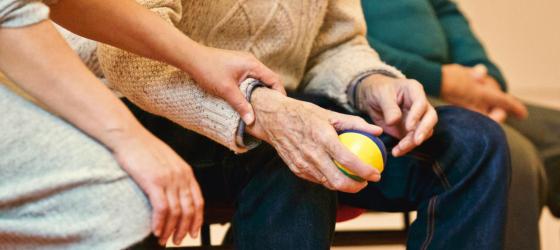Code: 9281
Course Coordinator: Elisa Pelosin
Coordinator for Practical-Technical Training and Internship: Susanna Accogli (Genoa campus), Daniela Garaventa (Chiavari campus), Valentina Dabove (Pietra Ligure campus), Laura Faraguti (La Spezia campus)
The Bachelor's Degree in Physiotherapy trains healthcare professionals responsible for prevention, treatment, and rehabilitation interventions in the areas of motor skills, higher cortical functions, and visceral functions.
Graduates in Physiotherapy carry out functional rehabilitation of motor, psychomotor, and cognitive disabilities through the use of physical, manual, massage, and occupational therapies. They recommend and train patients in the use of prostheses and assistive devices and assess their effectiveness.
Physiotherapists acquire and demonstrate their knowledge and skills in rehabilitation sciences applied in neurological, orthopedic, cardiorespiratory, urogynaecological, and oncological fields, addressing individuals in developmental age, adults, and the elderly.
Career opportunities include the National Health Service (NHS), private clinics, rehabilitation centers, nursing homes, and medical outpatient clinics. Physiotherapists may also work as freelancers in private practices, sports associations, service cooperatives, and non-profit organizations.
The Physiotherapy degree is a qualifying degree for the profession of Physiotherapist and has a duration of three years.
(Institutions involved: IRCCS San Martino University Hospital, ASL 4 Chiavarese, ASL 2 – S. Corona Hospital in Pietra Ligure, ASL 5 Spezzino)
Learning Objectives and Career Opportunities
Graduates in Physiotherapy, based on medical diagnoses and prescriptions and within the scope of their competencies:
develop, also as part of a multidisciplinary team, rehabilitation programs aimed at identifying and addressing the health needs of individuals with disabilities;
independently carry out therapeutic activities for the functional re-education of motor, psychomotor, and cognitive disabilities using physical, manual, massage, and occupational therapies;
propose the use of prostheses and assistive devices, provide training in their use, and assess their effectiveness;
evaluate the outcomes of the rehabilitation methodologies applied in relation to the set functional recovery goals;
engage in research, teaching, and professional consulting activities within healthcare services or other contexts requiring their expertise;
practice in public or private healthcare facilities, either as employees or self-employed professionals.
